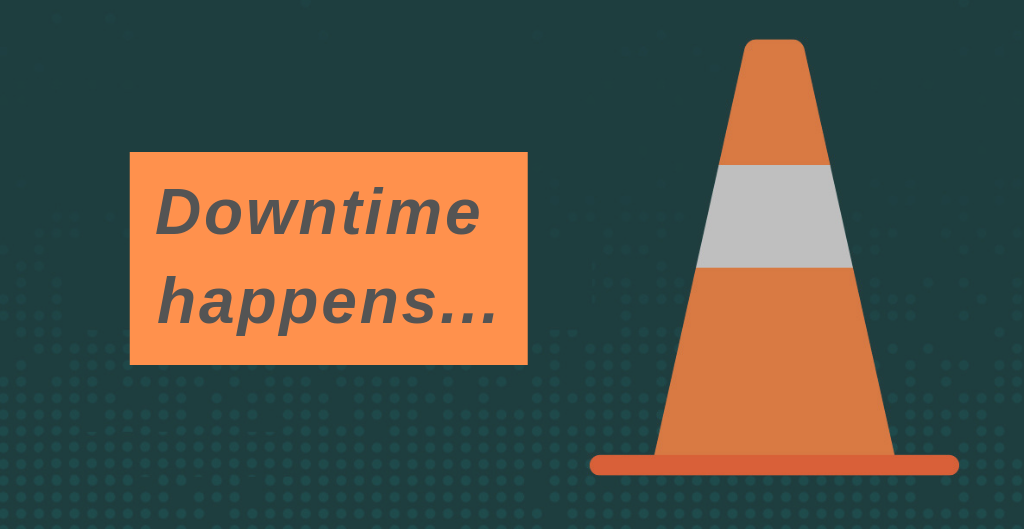What may cause your website to crash, making it unavailable to visitors?
Having put a lot of time and effort into designing a website, thoughts then tend to turn only to referencing and conversion rates. But not enough thought is given to protecting it from crashing. After all, what’s the worst thing that could happen to it? Once it’s well positioned in the search engine results and making money, a small failure from time to time is nothing to worry about, is it?

Ah, yes well that’s where you’d be wrong, asa single failure could have seriousrepercussionsfor your online marketing. The website itself may fall from its top position and stop earning you money. That’s why prevention is definitely better than cure when it comes to these potential failures. But before you can prevent a failure, you first need to know what exactly is causing your website to crash.
A poor-quality hoster
More often than not, website failures are caused by a problem at host level. If you’ve chosen a poor-quality web host, the availability of your site may not be up to scratch and your business could take a serious hit. The truth is, even if many hosting providers claim to offer a 99.99% availability guarantee, in actual fact some don’t even make it past the 80% mark. This guarantee is a big selling point for webmasters, but most of them don’t even bother to check whether there’s any basis to it.
A monitoring tool, preferably external, makes it possible to objectify the real-time availability rate of the proposed infrastructure. This will tell you whether the host was honest or not. In the worst case scenario, you’ll never know the actual availability rate of your site, because the host hides this information from you. But, at the very least, you should set up a monitoring system such as the one proposed by internetVista to obtain reliable statistics from an independent trusted third party.
A hardware problem
Hardware failure alone is believed to cause up to half of all website crashes. The server is the main culprit here. If you’ve installed your website on private servers, it’s well worth configuring and checking them on a regular basis. Remember, even if you’ve accounted for several levels of redundancy and various power sources, there’s nothing you can do against a generalized power cut. And nothing will protect your various cables from becoming rodent food either. No matter what security measures you’ve taken, there is always a risk that your site will crashdue to a hardware failure.
A DNS problem
The DNS (Domain Name System) makes your website accessible online thanks to the domain name you’ve assigned to it. However, it is not immediately propagated across the web. It takes between 10 min. and 24 h for this DNS propagationto become effective if you’ve set it up correctly. Otherwise, a small error in the server name (nameserver) could make the site inaccessible. It is still quite easy to solve this failure, as all you have to do is copy and paste the nameservers sent by your web host by email into the sections dedicated for this purpose in your administration space.
Hacking

Hackers don’t always have any ostensible reason for their actions. Some apprentice hackers do it just for practice. They randomly target a site, analyse it to detect any flaw and have fun sabotaging it. In actual fact, they use „bots“ or scripts designed solely to scan the web for vulnerable sites. If this type of activity happens to fall on your site, you will have a job solving it, depending on the complexity of the hacking. In this case, the only solution is to strengthen your website from the very beginning. Otherwise, you’ll have to bring in a web professional to restore it.
A DDoS attack
DDoS stands for “Distributed Denial of Service” and refers to attacks on a server by flooding it with requests that overwhelm it and sends it crashing. This type of attack tends to be targeted at large sites. If the victim is among the sites hosted on the same server as yours, your site may crash along with it like the rest of those on the attacked server. You will therefore be the victim of collateral damage. The only way to prevent this is to host your site on a private server.
Maintenance in progress

Each website requires regular maintenance. It is even essential to keep the site out of the clutches of online hackers. That being said, maintenance means site downtime or “web failure”. However, not doing so would also be highly risky, as many of its components are more vulnerable to hazards without regular maintenance. The solution is to plan your maintenance in advance and perform it late in the evening or very early in the morning. In short, do it at a time when there will be few visitors to your site. So if the site does break down during maintenance, then it’s not that much of an issue.
A problem at CMS level
CMSs (Content Management Systems) are not immune to failures themselves. Even if some of them are well served with a large active community, they still sometimes encounter bugs, especially after a major update. What’s more, many sites come down with these bugs at the same time, because they can spread. However, they usually fix themselves following minor updates that CMS editors perform without us even noticing.
Other errors to keep in mind
If the failure on your site does not come from any of those already mentioned above, it could also come from:
- a coding error,
- malicious code contained in an extension or plugin,
- a peak of traffic (very frequent when the site starts to dominate search engine results).
In short, you can see that your site may be in danger. In an ideal world, you would have round-the-clock certainty that your site is working correctly and is accessible on the web… peace of mind that is offered by website monitoring services such as internetVista. internetVista checks in real time and at regular intervals that your site is up and running and, in case of a problem or anomaly, internetVista notifies you directly by sending a notification (email, text, etc.)
